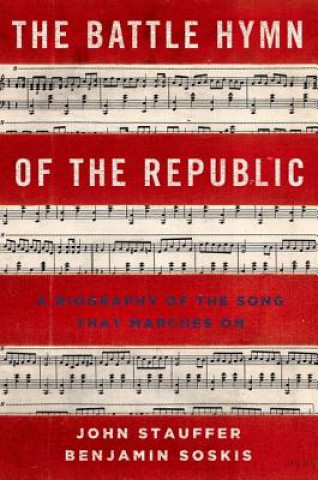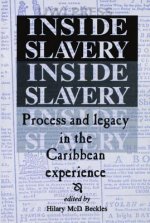
Doručenie
Nákupný poradca





Nehodí sa? Žiadny problém! U nás môžete do 30 dní vrátiť
 Darčekový poukaz
v ľubovoľnej hodnote
Darčekový poukaz
v ľubovoľnej hodnote
S darčekovým poukazom nešliapnete vedľa. Obdarovaný si za darčekový poukaz môže vybrať čokoľvek z našej ponuky.
Battle Hymn of the Republic
 Angličtina
Angličtina
 79 b
79 b
30 dní na vrátenie tovaru
Mohlo by vás tiež zaujímať


It was sung at Ronald Reagan's funeral, and adopted with new lyrics by labor radicals. John Updike quoted it in the title of one of his novels, and George W. Bush had it performed at the memorial service in the National Cathedral for victims of September 11, 2001. Perhaps no other song has held such a profoundly significant-and contradictory-place in America's history and cultural memory than the "The Battle Hymn of the Republic." In this sweeping study, John Stauffer and Benjamin Soskis show how this Civil War tune has become an anthem for cause after radically different cause. The song originated in antebellum revivalism, with the melody of the camp-meeting favorite, "Say Brothers, Will You Meet Us." Union soldiers in the Civil War then turned it into "John Brown's Body." Julia Ward Howe, uncomfortable with Brown's violence and militancy, wrote the words we know today. Using intense apocalyptic and millenarian imagery, she captured the popular enthusiasm of the time, the sense of a climactic battle between good and evil; yet she made no reference to a particular time or place, allowing it to be exported or adapted to new conflicts, including Reconstruction, sectional reconciliation, imperialism, progressive reform, labor radicalism, civil rights movements, and social conservatism. And yet the memory of the song's original role in bloody and divisive Civil War scuttled an attempt to make it the national anthem. The Daughters of the Confederacy held a contest for new lyrics, but admitted that none of the entries measured up to the power of the original. "The Battle Hymn" has long helped to express what we mean when we talk about sacrifice, about the importance of fighting-in battles both real and allegorical-for the values America represents. It conjures up and confirms some of our most profound conceptions of national identity and purpose. And yet, as Stauffer and Soskis note, the popularity of the song has not relieved it of the tensions present at its birth-tensions between unity and discord, and between the glories and the perils of righteous enthusiasm. If anything, those tensions became more profound. By following this thread through the tapestry of American history, The Battle Hymn of the Republic illuminates the fractures and contradictions that underlie the story of our nation.
Informácie o knihe
 Angličtina
Angličtina




 Ako nakupovať
Ako nakupovať























